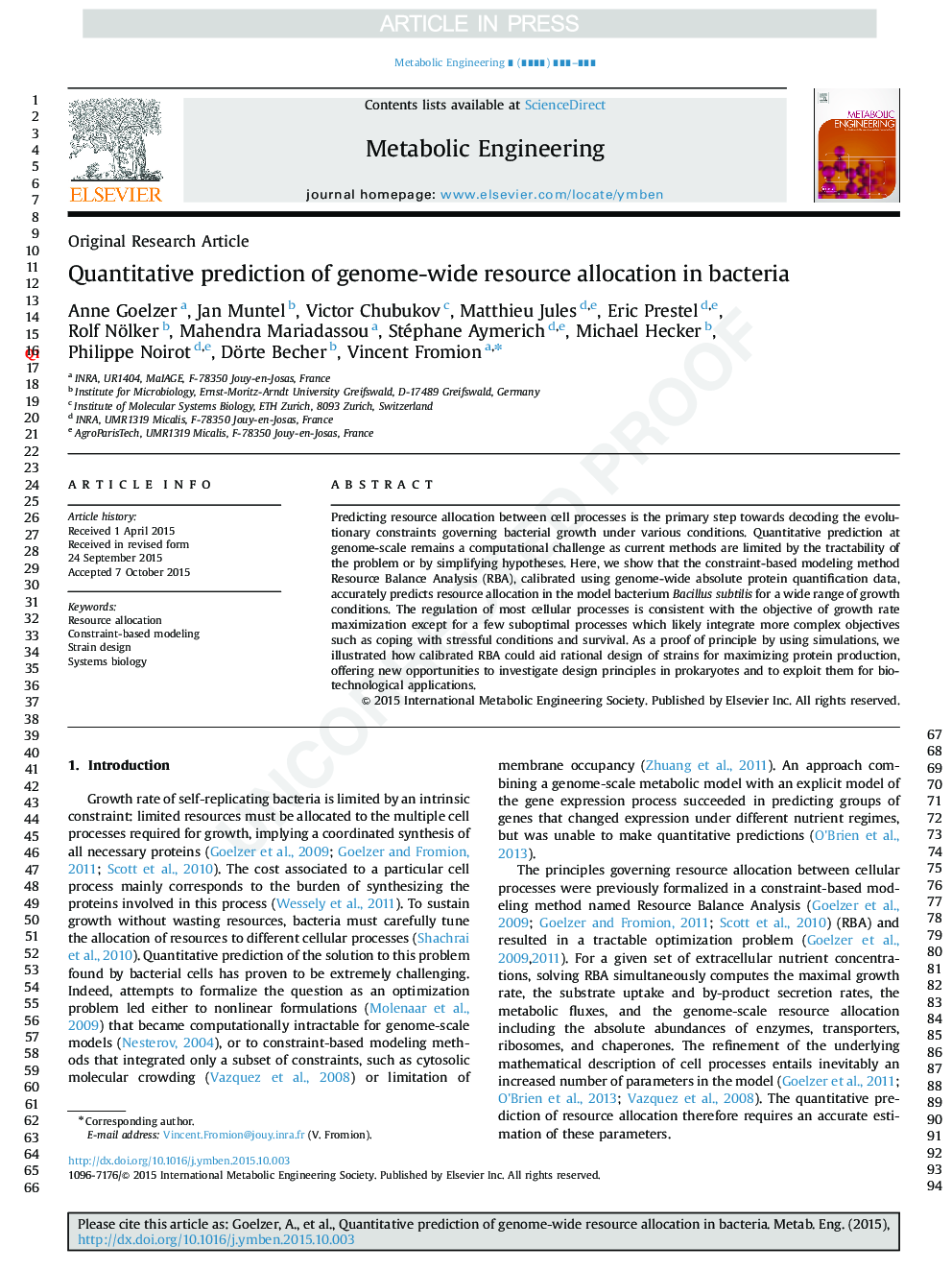| Article ID | Journal | Published Year | Pages | File Type |
|---|---|---|---|---|
| 6494325 | Metabolic Engineering | 2015 | 12 Pages |
Abstract
Predicting resource allocation between cell processes is the primary step towards decoding the evolutionary constraints governing bacterial growth under various conditions. Quantitative prediction at genome-scale remains a computational challenge as current methods are limited by the tractability of the problem or by simplifying hypotheses. Here, we show that the constraint-based modeling method Resource Balance Analysis (RBA), calibrated using genome-wide absolute protein quantification data, accurately predicts resource allocation in the model bacterium Bacillus subtilis for a wide range of growth conditions. The regulation of most cellular processes is consistent with the objective of growth rate maximization except for a few suboptimal processes which likely integrate more complex objectives such as coping with stressful conditions and survival. As a proof of principle by using simulations, we illustrated how calibrated RBA could aid rational design of strains for maximizing protein production, offering new opportunities to investigate design principles in prokaryotes and to exploit them for biotechnological applications.
Related Topics
Physical Sciences and Engineering
Chemical Engineering
Bioengineering
Authors
Anne Goelzer, Jan Muntel, Victor Chubukov, Matthieu Jules, Eric Prestel, Rolf Nölker, Mahendra Mariadassou, Stéphane Aymerich, Michael Hecker, Philippe Noirot, Dörte Becher, Vincent Fromion,
